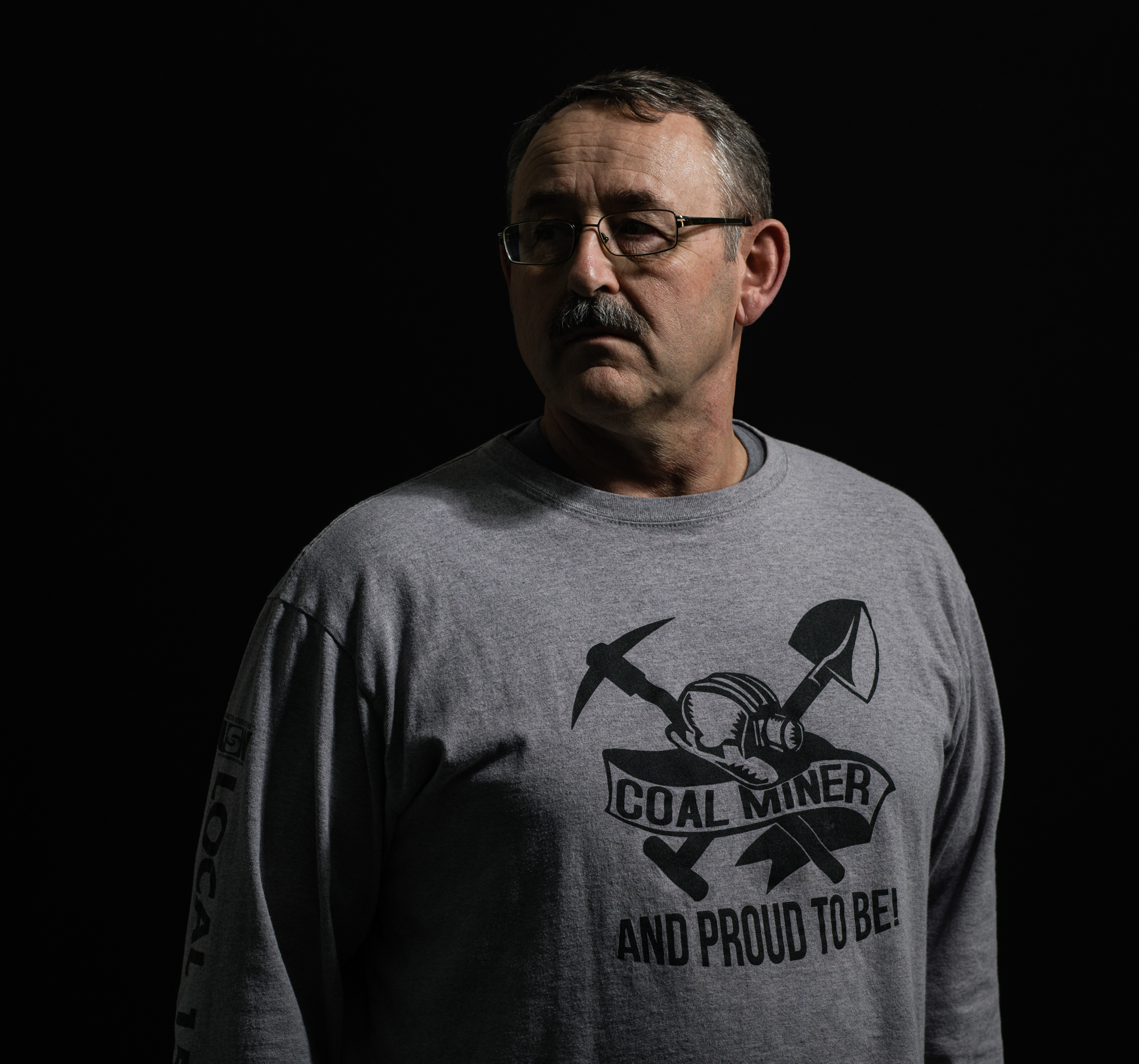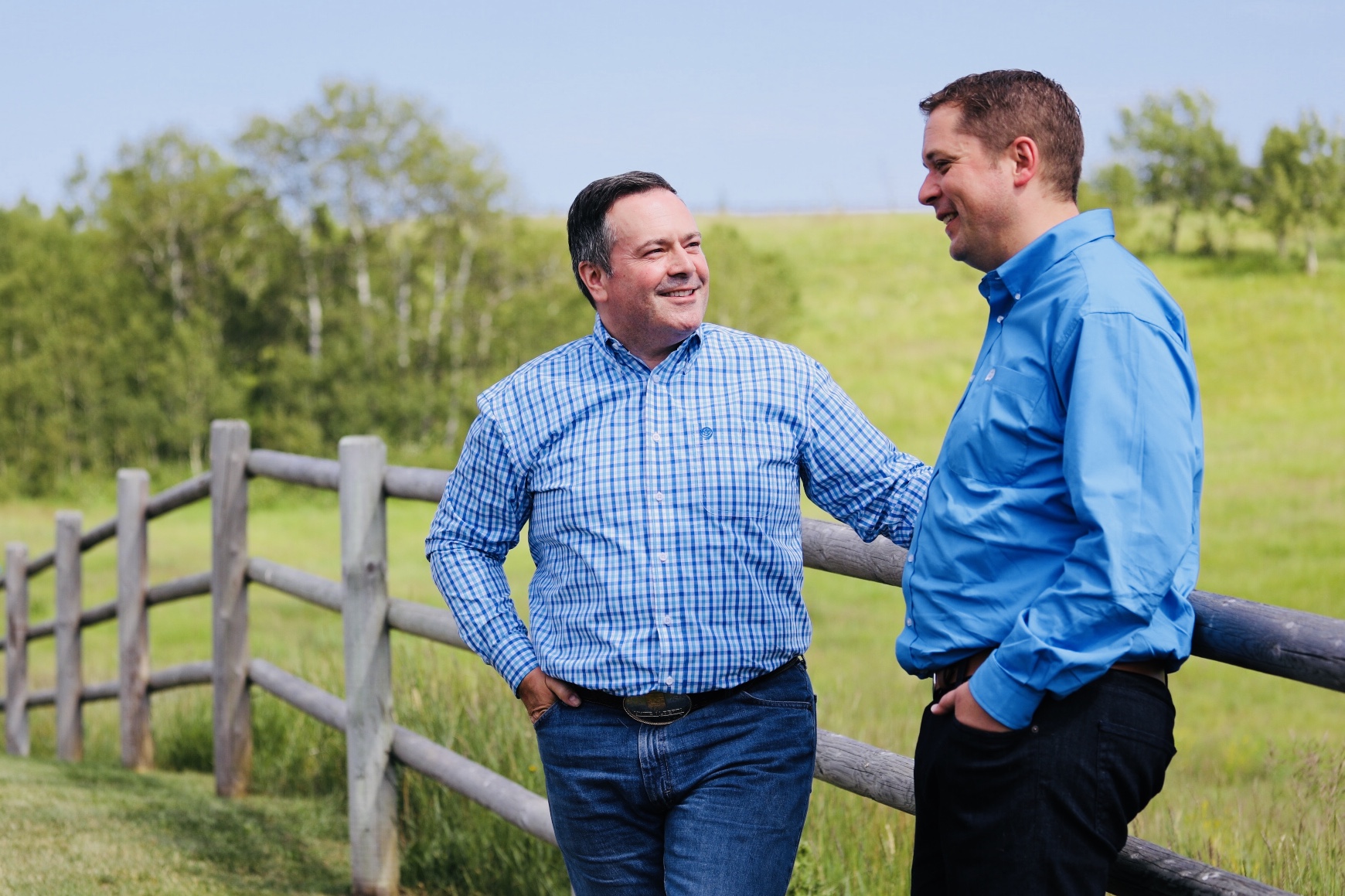The coal workers that Roy Milne knows are pissed-off, stressed-out and worried about their futures. Like many Albertans, they figured that voting in the United Conservative Party of Jason Kenney this spring would bring more prosperity and stability to their lives than the New Democratic Party of Rachel Notley. But instead they feel more precarious than ever.
“They’re going ‘hmmm,’” said Milne, who has worked in coal since the 1980s and is president of the United Steelworkers Local 1595 in the town of Wabamun, about an hour’s drive west of Edmonton. “They were mad at the NDP to begin with for phasing out coal so quickly. But they’re equally as mad at the new government for leaving them hanging in the breeze.”
With a federal election on Oct. 21, Premier Kenney has been off in Ontario campaigning for federal Conservative leader Andrew Scheer.
But Milne said back at home, Kenney’s government has at various times frozen and delayed assistance programs for coal workers that were brought in under the Notley government, leaving laid-off workers, along with their families and communities, in nerve-wracking financial limbo.
When Notley unveiled the Coal Workforce Transition Program as part of the NDP’s commitment to phase out all coal-fired generation plants by 2030, it was hailed as a model for how to protect workers while responding to the climate crisis. On that score, “no other provincial government in Canada has worked as cooperatively with workers and communities,” Joie Warnock, Unifor Western regional director, said at the time.
But the Kenney government stalling on that promised support makes workers’ lives “extremely stressful,” Milne said. “You’ve got probably a mortgage, and a family and bills. You can’t sit around and wait.”
Kenney has promised that a decision about whether to continue helping workers shift away from a fossil fuel that is destroying the climate and rapidly becoming unprofitable will be announced on Oct. 24 when the UCP releases its first budget. But until then nobody, not even the mayors of towns most affected by the phase-out, has any clue what’s in store for them.

“If there’s any new dollars for coal transition, I wouldn’t know,” said Wabamun Mayor Charlene Smylie, despite the nearby Highvale Mine expected to lay off several dozen unionized workers by the end of this month.
Milne isn’t so sure it’s a coincidence that news about the support program is coming shortly after the federal election.
“I’m a very cynical soul; I don’t believe that the provincial government has been willing to step forward and say, ‘Either we’re going to close it or we’re going to keep it running,’ because they don’t want to give the federal election another issue to argue about,” he said. “If the provincial government is throwing the workers out with the bathwater by cutting the program, then that gives the federal Liberals grounds to say ‘look how horrible these Conservatives are.’”
Others agree this theory isn’t completely far-fetched. “It doesn’t sound crazy, that sort of thing has happened in the past,” said Kieran Quirke, who ran unsuccessfully with the provincial NDP in the coal-heavy constituency of Drayton Valley-Devon. “Whether this government is doing that, I really don’t know. All I know is that we’re still waiting for a legitimate plan.”
It’s true that the coal phase-out brought in by Notley’s NDP, which was coordinated as part of a larger, Canada-wide phase-out implemented by the federal Liberals, didn’t go exactly according to plan. The NDP said it would pay out over $1 billion to coal power producers to help them switch to other forms of energy like natural gas by 2030, which had the effect of accelerating the shift. Rather than wait, many producers made plans to get off coal immediately.
“We’ve got a total of 6,370 megawatts coal coming offline by 2030, of this about 79 per cent are scheduled to be retired or converted to gas by 2023,” said Binnu Jeyakumar, director of clean energy at the non-partisan Pembina Institute.
Yet the payout wasn’t the only factor in early retirements. The economics of coal overall are not great. There has been a severe downturn globally in the market over recent years due in part to competition from natural gas and renewables.

The carbon pricing system brought in under the NDP also likely contributed. “That’s actually a textbook case study of how a carbon tax can have tangible impacts,” Jeyakumar. “What operators are finding is because of the difference in carbon tax between a coal plant and a gas plant, it makes sense to do early conversions.”
The provincial carbon pricing system, which Kenney began dismantling as soon as he was elected premier, also played another crucial role in the fate of Alberta’s coal industry: assisting the 2,000 or so workers affected by the coal transition. Pembina released an explainer in 2017 showing that of $5.3 billion in revenue associated with carbon pricing, nearly $1 billion was slated for coal community support and other initiatives.
With that revenue now largely drying up due to Kenney axing the carbon levy, and with his UCP looking to potentially cut $600 million in spending per year to reduce the deficit, it’s unclear where the money will come from to help coal workers.
The UCP didn’t respond to The Tyee’s media request. It did, however, tell the Star Calgary that “anyone who has been approved for support will continue to receive it.”
What about workers facing layoffs who haven’t yet been approved? Milne said after the UCP took power, approvals for programs that help top up workers’ Employment Insurance, help bridge them to retirement, or cover the cost of school tuition ground to a halt for several months. Just in the past month did people who applied back in the spring begin receiving assistance. Government representatives could only say “that the process is moving slowly and it will take much longer to get any approvals,” Milne said.
There is also the chance that these programs could be cancelled altogether in the upcoming provincial budget. “They’re just figuring out what they can do to balance the budget,” said Chris Warwick, the mayor of Hanna, about 200 of whose residents work in coal. “Hopefully there’ll be some good news and funding still available… I suspect that probably if there is some money allocated it won’t be a lot. That’s just my suspicion.”
Warwick went on, “It’s easy for this government to say, well, ‘We didn’t create this problem.’” He’s presented concerns about how program cuts could hurt his town and its inhabitants to the government, but “they didn’t give us any indication as to what they’re going to be doing.”

Warwick said the NDP programs were far from perfect. Coal workers could receive a voucher covering their tuition for school but not assistance for actually getting to the school. “That’s a very small part, especially when you live you at least a two-hour drive from any postsecondary education,” he said.
But it was reassuring to know that there were at least some government supports in a place during an era of uncertain economic transition. Now, even those supports could be on the UCP’s chopping block. The federal Liberals have meanwhile been unclear about the exact assistance they would provide to workers, and the Conservative climate plan doesn’t once mention helping the people impacted by Canada’s shift away from coal.
The night Kenney was elected, he delivered a message of triumphant optimism for workers across Alberta. “To the unemployed, to those who have given up, to the small business owners barely hanging on, to the young people who got their degrees and diplomas but can’t put them to work, to those who have lost their homes and their hope after years of economic decline and stagnation,” he said. “To them, tonight, we send this message: Help is on the way, and hope is on the horizon!”
At this point, all Milne is asking for is some honesty. “The best thing the province could do is say the program’s in place or conversely just to come flat out and say, ‘We’re killing it, we don’t care, it’s done,’” he said. “If that’s the case, then just say that that’s the way it’s going to be, and people being laid off and getting notice to be laid off can be able to plan their lives accordingly not kind of wonder whether the supports will be there or not.”
More than anything else, Milne is sick of “empty promises.” ![]()
Read more: Energy, Labour + Industry, Environment

















Tyee Commenting Guidelines
Comments that violate guidelines risk being deleted, and violations may result in a temporary or permanent user ban. Maintain the spirit of good conversation to stay in the discussion.
*Please note The Tyee is not a forum for spreading misinformation about COVID-19, denying its existence or minimizing its risk to public health.
Do:
Do not: